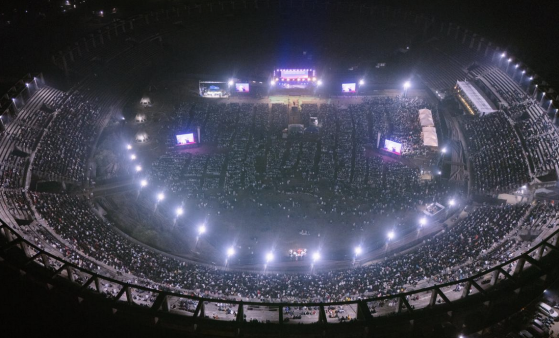While the Supreme Court on Thursday upheld the Constitutional validity of the Right to Education Act, it also made clear that the law would not apply to unaided minority schools.
In a significant move, the apex court made it mandatory for public and private schools to keep 25% seats for children from the economically weaker sections.
A three-judge Bench headed by Chief Justice S H Kapadia remarked that a child who is denied right to access education is also deprived of his right to live with dignity and freedom of speech and expression.
"The 2009 Act seeks to remove all those barriers including financial and psychological barriers which a child belonging to the weaker section and disadvantaged group has to face while seeking admission," the Bench said.
The Bench also clarified that unaided minority institutions will be kept outside the purview of the Act.
Giving a dissenting judgement, Justice KS Radhakrishnan said that the Right to Education Act would not apply to schools run by minority communities and not aided by the government.
"Article 21A casts an obligation on the state to provide free and compulsory education to children of the age of 6 to 14 years and not on unaided non-minority and minority educational institutions," Radhakrishnan said.
Minority institutions, meanwhile, have welcomed the Supreme Court order which has brought them much relief as most minority schools are already enrolling children from economically poor backgrounds, and an addition 25 per cent quota would only be a burden.
From the time the Act came into existence, several Christian groups including the Isai Mahasangh and the Catholic Council of Bishops had objected to its 'misuse' by the state government.
"The Christian community was never against the RTE Act, but we objected its misuse. The church will continue to provide educational services to the poor and the marginalized," said Fr Anand Muttungal, coordinator of Isai Mahasangh, a representative body of Christians in Madhya Pradesh.
The RTE Act envisages that all poor children aged 6-14 years be given free and compulsory education within their neighbourhood. It would apply from the 2012-13 academic year.
The government will reimburse private schools for admitting poor students but only to the extent of the expenditure it will incur if those students were to be schooled in a state-run set-up.
Human Resource Development Minister Kapil Sibal today welcomed the apex court's view and said the future of children will be secured through the law.




